How often do you think that you should be able to accomplish a particular task? Or that you should do….insert activity that might be good for you but that you don’t currently do?
Here are some examples:
I should be able to figure out my monthly expenses, what is wrong with me?
I should go to the gym more, what is wrong with me?
Everyone else remembered to call Sue on her birthday, I should be able to remember something that simple, what is wrong with me?
My mentor coach would call this “shoulding on yourself.”
The word should, per the Oxford English Dictionary, is “used to indicate obligation, duty, or correctness, typically when criticizing someone’s actions.” In other words, should is a judgment word. To “indicate…correctness” implies that if you don’t do what you should, you are incorrect. In the wrong. Even the definition tells us it’s used typically to criticize.
And for ADHDers, there can be lots of shoulds. And lots of self criticism.
But wait a minute, you say. Aren’t there things we really should do?
Of course there are. We should drive sober. We should pay our taxes. We should call our mothers on Mother’s Day, and dads on Father’s Day.
So when SHOULD we use should? And when is should akin to a four letter word?
The way I look at it is this: I feel that should can be reserved for absolutes. For rules, laws, socially acceptable customs – in other words, situations where there is no judgment involved, because it’s pretty black and white.
But when it’s not a rule, using should kind of makes it a rule. And then if we don’t do something, we’ve broken that rule-and we go down the rabbit hole of shame.
How about, when it’s not a rule, we use “want?” Let’s try it.
I want to be able to figure out my monthly expenses, but I’m not sure how. Maybe I’ll ask someone for help.
I want to go to the gym more, what can I do to get there consistently?
Everyone else remembered to call Sue on her birthday, I want to be able to remember something that simple. What can I do to make this happen?
“Should” makes it a rule, and invites embarrassment and shame. “Want” makes it a desire, and invites action.
So here’s a little assignment: try to notice when you say you should do something. And if you do catch yourself, replace should with “want to,” and see how different that vibe is.
It will probably make you want to stop shoulding all over yourself!

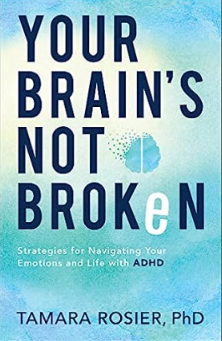 Your Brain’s Not Broken – Tamara Rosier
Your Brain’s Not Broken – Tamara Rosier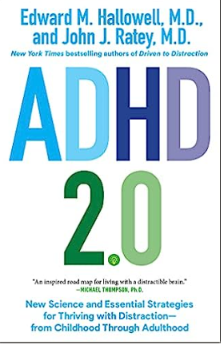
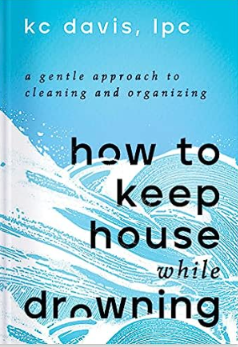 how to keep house while drowning – KC Davis
how to keep house while drowning – KC Davis 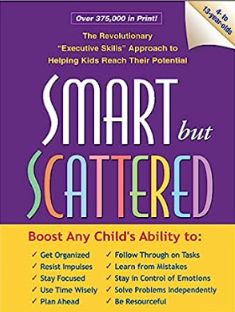
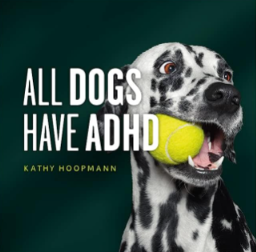 All Dogs Have ADHD – Kathy Hoopmann
All Dogs Have ADHD – Kathy Hoopmann